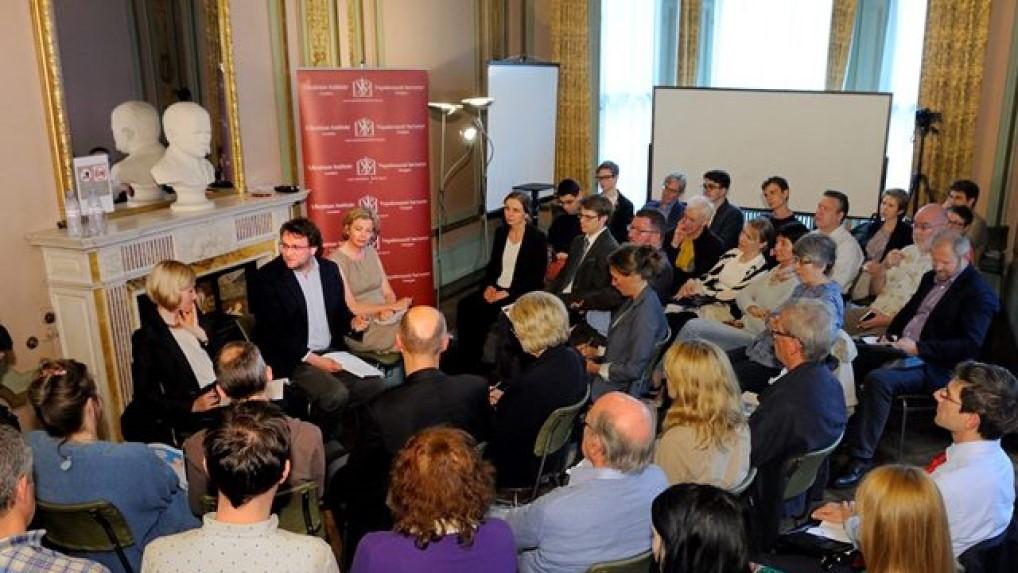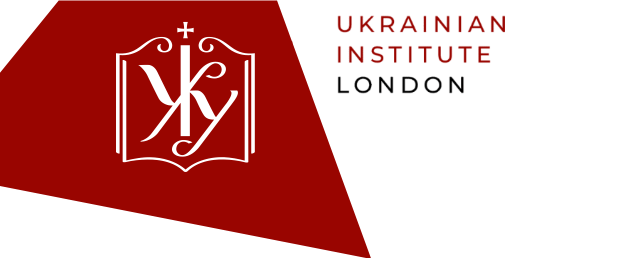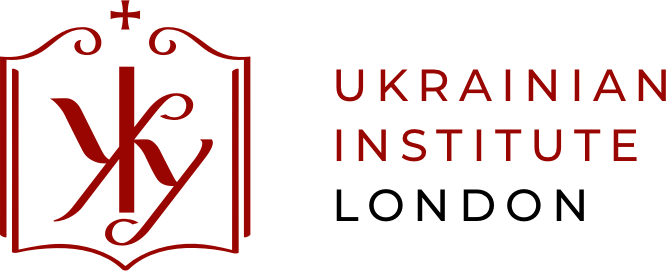A presentation of the Legatum Institute research paper “How to Stop Disinformation: Lessons from Ukraine for the Wider World,” co-authored by Peter Pomerantsev and Marina Pesenti, took place at the Ukrainian Institute London on June 30 2016. The discussion with the authors was moderated by Anna Reid.

AUTHOR
Ukrainian Institute London. Extracts from a Facebook post by Lesia Daria Rudakevych have been used in this text.
What can one do to bridge the divide between communities, each trapped in its own information bubble? It is an issue equally relevant for British and Ukrainian society. You can no longer assume that you can fight lies with facts, only with better psychological tactics, noted Peter Pomerantsev, Senior Fellow at the Legatum Institute, at the talk held at the Ukrainian Institute London on June 30, 2016.
Confronting people with deeply held beliefs is a bit like talking to someone trapped in a cult. They need to be eased out gently.
“Confronting people with deeply held beliefs — whether they’re wrong or irrational or harmful — is a bit like talking to someone trapped in a cult. They need to be eased out gently,” he said. He continued: “You can also at times choose to ignore or not talk about the inciting topic, of course, but if you do want to bridge a gap with loved ones, or make a difference in society to build unity as a whole, you’ll need to build bridges both in the narrative you’re giving and/or how you’re presenting it.”
The Legatum Institute research paper “How to Stop Disinformation: Lessons from Ukraine for the Wider World” that Peter co-authored with Marina Pesenti, Director of the Ukrainian Institute London, was unveiled at the event. It examines the narrative Ukraine has built in response to a well-orchestrated campaign of information warfare unrolled by Russia, and the role Ukraine’s state institutions, its civil society and its media played in standing up to that challenge.
“As the annexation of Crimea and the war in Donbas happened, Ukraine developed its own ‘heroic’ narrative about ATO, ‘our lads’, ‘cyborgs’ fighting against ‘terrorist troops’ and ‘separatists’. However, in many swing regions, like Odessa, many people do not buy this narrative, while subscribing to the more universal values of the rule of law and security,” said Marina Pesenti.
Most people reside in their own ‘echo chambers’, cutting off other undesirable viewpoints.
The problem is exacerbated further by the fact that most people reside in their own ‘echo chambers’, cutting off other undesirable viewpoints. Ironically, due to the way technology has progressed (in particular, social media) and the way it now disseminates information in the modern world, we’re all more likely to reside in our own ‘echo chambers’ where other viewpoints and even facts are unlikely to penetrate, said Pomerantsev. This was the case in Ukraine and it is the case with the Brexit campaign in the UK and the Trump campaign in the US.
“Ukraine in this sense is at the forefront of this post-modern world – and needs no lessons from the West on ‘democracy’ – because the authorities and media and civil society there are already engaging actively in trying to formulate a response to disinformation. In other words the narrative you spin matters, and how you frame it, even more so.”
It is no longer enough to present “two points of view”.
What is the role of the media and public broadcaster in this? It is no longer enough to present “two points of view”, as BBC and other well-established British media used to do and teach their eastern European counterparts to follow. “One way the media can help in fighting disinformation is to mix the cultural with the political through personal stories. Often people hold on to views because they feel besieged. The best way to begin to change their minds is to let them vent — like talk shows, where both sides can exchange personal stories.”
In Ukraine, this common narrative could be built around issues of national importance: roads, healthcare, education, reform of utilities. The public broadcaster in Ukraine should become an activist broadcaster, promoting changes in society through their programming, said Marina Pesenti.
The debate was moderated by writer and journalist Anna Reid.


